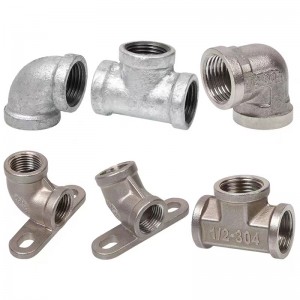Corrosion-resistant metals are essential components of many engineering projects. These special alloys provide scientists and engineers with technological solutions that maintain the integrity of their projects for long periods of time, even under the most extreme weather conditions or contact with water or various liquids.
Due to the ability to resist corrosion and oxidation, these specialized metals offer superior protection from adverse environmental conditions and extend the lifespan of a product.
What are Corrosion-Resistant Metals?
Corrosion-resistant metals are substances that provide a protective layer against corrosion and oxidation. These materials are a special class of metals designed to resist damage from environments that would normally be corrosive such as moist air, acid rain, and salt water.
They can range from alloys like nickel-chromium steel to synthetic composites, depending on the severity of the environment they will be exposed to.
Engineers often use corrosion-resistant metals in place of traditional iron or steel where harsh or extreme conditions are present. This property gives them the assurance that their designs will stand up to aggressive weather conditions and put less strain on maintenance and replacement costs over time.
Corrosion-resistant metals represent an important advancement in engineering, construction projects, and many other areas of industry.
What Makes a Metal Corrosion Resistant?
Corrosion resistance involves a range of factors, such as electrochemical reactivity, alloys, and coatings. For example, their heat treatment processes can influence how susceptible a metal is to corrosion. Alongside this, certain alloys and treatments can greatly enhance the metal’s resistance to corrosive agents.
Additionally, some oxidation-resistant coatings, such as zinc and nickel galvanization, minimize the impact of corrosion by creating a physical barrier between the metal and the environment. When all these elements are brought together, they create a strong combined corrosion resistance potential within the affected metal.
Types of Corrosion-Resistant Metals:
Stainless steel is a popular corrosion-resistant metal due to its high chromium content, which makes it highly resistant to rust, staining, and corrosion. It is also available in a wide range of shapes, sizes, and grades depending on the application and environment.
2.Aluminum Alloys
Aluminum alloys are also popular for their resistance to corrosion but may have poor corrosion resistance in water environments. Aluminum alloys have a relatively low density and good formability for fabrication into various shapes and forms. They can be heat treated for increased strength when needed.
3.Nickel Alloys
Nickel alloys are known for their excellent corrosion resistance as well as a wide range of mechanical properties. Nickel alloys often contain chromium or nickel-iron precipitation-hardening stainless steels that offer superior hardness and strength even at elevated temperatures.
4.Copper Alloys
Finally, copper alloys offer excellent electrical conductivity with outstanding corrosion resistance in certain environments. Copper alloys are also lightweight and strong, which makes them great for applications such as marine equipment, piping systems, valves, pumps, fasteners, and more.
How to Choose the Right Metal for Your Project: 3 Key Factors
When deciding on a corrosion-resistant metal, key considerations include the environment where it will be used, the metal’s form factor, and the cost of the alloy.
#1 Environment or Application
Knowing the environment or application where your metal will be used is an important step in selecting a corrosion-resistant metal. Different metals possess different levels of resistance to various corrosive environments, such as seawater, acidic liquids, and more.
Understanding the environment the metal must endure is key when evaluating what type of corrosion-resistant alloy you should use.
#2 Form Factor
The form factor of the metal also plays a role in choosing the right corrosion-resistant metal for your project. Many different types of alloys are available in sheet, bar, tube, or coil form, so deciding which one best suits your needs is necessary.
Additionally, maintenance considerations may come into play when deciding between sheet versus bar, so it’s important to consider how easy replacing pieces with new stock might be for future maintenance needs.
#3 Cost
Finally, cost should be taken into consideration when choosing a corrosion-resistant alloy for your project. Some metals can be very expensive due to their increased performance characteristics and availability, while other less expensive options may not offer the same level of protection from corrosive elements.
It’s vital to weigh cost versus performance when making this decision.
Shenzhen Xinsheng Precision Hardware Machinery Co., Ltd specializes in providing customers with the necessary expertise to choose the right corrosion-resistant metal for their project.
In addition, we have more than 60 professional production technicians and more than 10 testing engineers. Our production equipment includes precision CNC milling machines, CNC lathes, hand milling machines, hand grinders, CNC surface grinders, CNC internal/external grinding machines, fast/slow wire cutting machines, etc.With a total of 80 sets of production equipment, we have passed ISO9001 quality management System certification and SGS enterprise certification.We look forward to mutual benefit and win-win cooperation with your company.
Post time: Mar-15-2023







